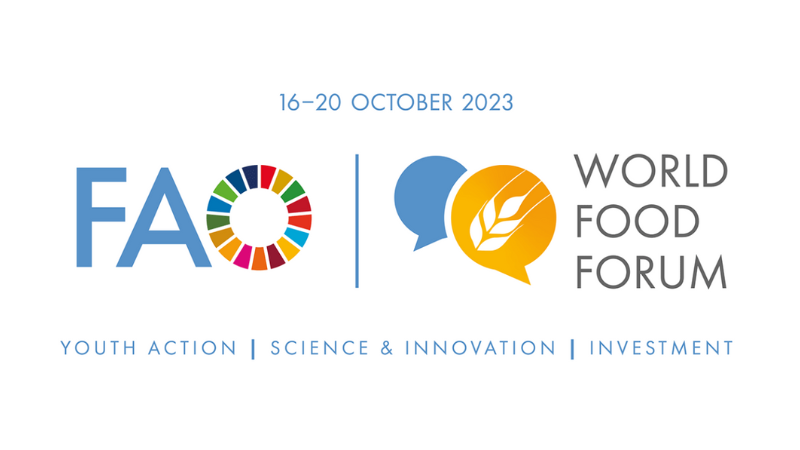Last week, from 16 to 20 October, the 2023 World Food Forum flagship event took place in Rome, Italy, at the headquarters of the Food and Agriculture Organization of the United Nations (FAO).
The event consisted of the WFF Global Youth Forum, the FAO Science and Innovation Forum and the FAO Hand-in-Hand Investment Forum, all convened under the overall theme “Agrifood systems transformation accelerates climate action”.
The objective was to foster discussions and deliberations among diverse stakeholders, such as youth, farmers, Indigenous Peoples, policymakers, agri-investors, and global scientists, to forge new paths of action, impact and acceleration on the local, regional and global levels to expedite agrifood systems transformation and Climate Action.
A delegation from the World Farmers’ Organisation got involved in several panels and roundtables, bringing the global farmers’ voice into the debate. The WFO delegation consisted of the WFO President, Mr Arnold Puech d’Alissac, as well as the WFO Board Members representing Europe, Ms Kati Partanen, and Africa, Ms Elizabeth Nsimadala. Joining the delegation also two young WFO representatives, Ms Josiane Irakarama, a former WFO Gymnasium attendee from INGABO Syndicate, and Ms Silvia Caprara, a current student in the WFO Gymnasium from ANGA.
The WFF was the occasion for the WFO delegation to advocate on behalf of the global farming community for a sustainable transformation towards more resilient and inclusive food systems, which must be first and foremost farmer-driven.
Furthermore, the participation of young farmers into the debates, with their innovative ideas, enthusiasm, and commitment to sustainable agriculture and food systems as well as to farmer-driven climate actions, was key to ensuring that governments, as well as all other relevant stakeholders, recognised the need to actively involve young farmers as equal partners in such fora and policy processes.
Here’s a rundown of the sessions the WFO participated in.
16 October – World Food Forum Grand Opening
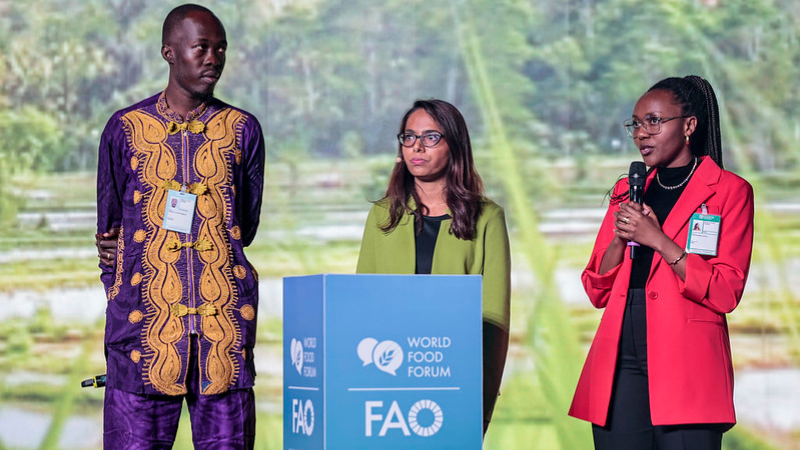
Photo credit must be given: ©FAO/Cristiano Minichiello. Editorial use only. Copyright ©FAO.
The Grand Opening kicked off the WFF 2023 flagship event.
In her intervention, Ms Irakarama emphasised the critical role young farmers play in the agriculture sector, making them essential actors in the transition towards more sustainable, equitable, and resilient food systems.
“Young farmers are the present and future of the farming sector.” pointed out the WFO youth representative, remarking that young farmers had already been actively contributing to their countries and organizations, bringing innovation to agriculture. Nonetheless, they faced a range of global challenges that required immediate attention, including resource access, climate change impact, conflicts leading to food insecurity, rural-urban divides, market accessibility, and the need for education and capacity building.
Ms Irakarama also acknowledged the World Farmers’ Organisation (WFO) for its efforts in empowering young farmers. She brought the example of the WFO Gymnasium capacity-building program, and its latest initiative, WFO Young, which aims to create the first-ever global platform for young farmers’ organisations worldwide and will be officially launched in June 2024.
17 October – Next Climate Solutions Superstars!
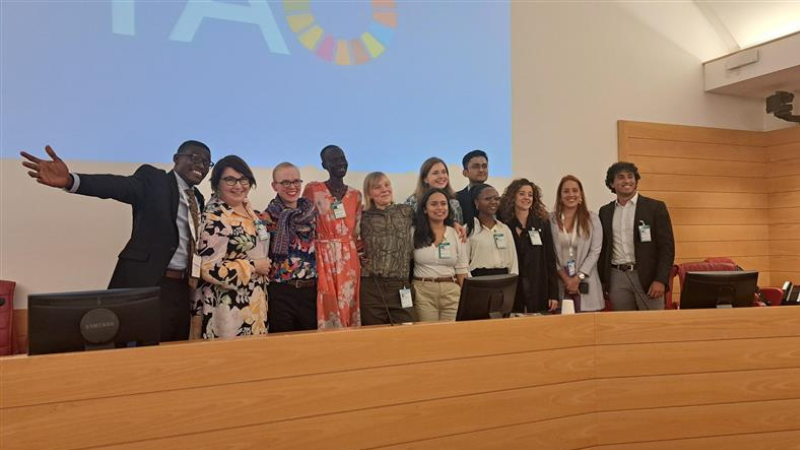
“Which innovations hold the most potential?”, “What are farmers already implementing, and where do they require increased collaboration from others?” those questions drove the event co-organised by the World Farmers’ Organisation and The NextGen Ag Impact Network (NGIN) in the framework of the WFF Global Youth Forum.
Delivering the closing remarks, the WFO Board Member and Treasurer, Ms Kati Partanen, acknowledged the profound passion that drives the agricultural community: “Agriculture is a field for passion. Today we have seen passion not only for farming but also for finding solutions. This is why we need more young people in the discussions around food systems and climate crisis!” – she stated.
“The main duty of agriculture is to produce food,” she continued, emphasizing that agriculture is not merely the combination of work and assets with biological processes in nature. It also involves science, research, and technology.
Then, Ms Partanen stressed the importance of considering all dimensions of sustainability – environmental, economic, and social. She noted that a one-dimensional focus would not lead to sustainable food production. “Agriculture” – she said – “is very much a ‘think global, act local’ type of activity.”
In closing, the Board Member highlighted WFO’s commitment to engaging young farmers in advocacy, discussions, and decision-making and emphasized the vital role of these young voices in securing the future of food production, reminding everyone that “NO FARMS, NO FOOD, NO FUTURE.”
19 October – Fostering innovations for small-scale producers for climate action
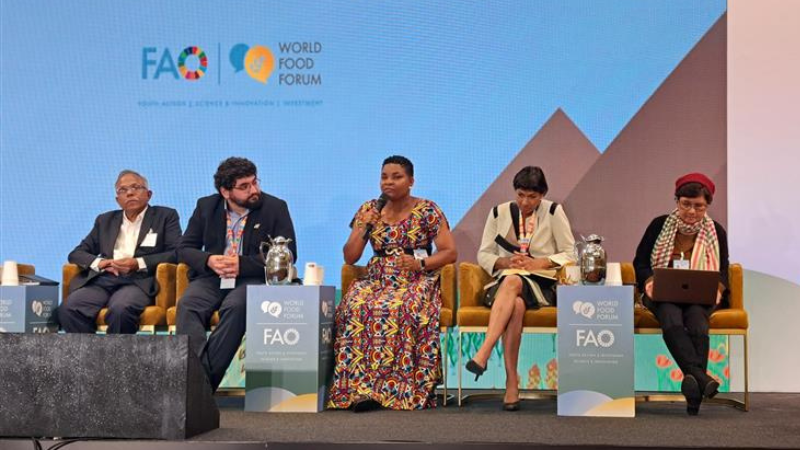
As part of the FAO Science and Innovation Forum, the WFO Board Member for the Africa Constituency and President of the Eastern Africa Farmers Federation (EAFF), Ms Elizabeth Nsimadala, joined a session exploring how small-scale producers can be engaged as co-developers of solutions and empowered to leverage innovations for climate change adaptation.
Ms Nsimadala highlighted the three most significant challenges faced by small-scale farmers:
- Trust: most actors in the food systems don’t believe in what small-scale farmers are doing in terms of innovation.
- Competition: small-scale farmers face competition from larger market players, which can be daunting.
- Limited Financing and Scalability: access to funding and opportunities for expansion are constrained.
She also took the occasion to stress the need for capacity-building initiatives for youth and women, advocating for equal opportunities to drive progress in the agricultural sector.
19 October – Innovative Solutions to address and assess loss and damage in agrifood systems
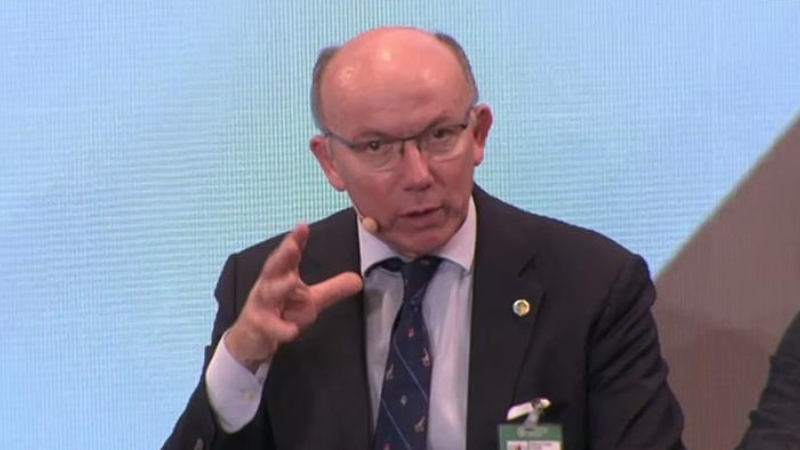
On the same day, within the FAO Science and Innovation Forum, the WFO President, Mr Arnold Puech d’Alissac, addressed a session focusing on how innovation can address and assess loss and damage in agrifood systems.
The President stressed that “farmers ‘on-farm’ experience must inform and improve government commitments to tackle climate change, particularly in the context of assessing and mitigating loss and damage within the agri-food sector”. He underlined the importance of involving food producers directly in decision-making processes to identify real challenges and shape policy priorities, highlighting their unique insights.
Mr d’Alissac also highlighted the WFO’s proactive role in promoting the Farmer-Driven Climate Agenda over the past five years, providing farmer-driven solutions to governments for implementing the Paris Agreement in agriculture. Additionally, he highlighted that:
“Through The Climakers initiative, we collected over 100 ‘Stories From the Field’, which means over 100 best practices farmers worldwide are implementing on the ground to mitigate and adapt to climate change.”
Finally, the WFO President acknowledged the global challenges faced by farmers due to conflicts, which disrupt their ability to work peacefully on their farms and hinder continuous food production.
20 October – Youth Assembly: Young Farmers Roundtable
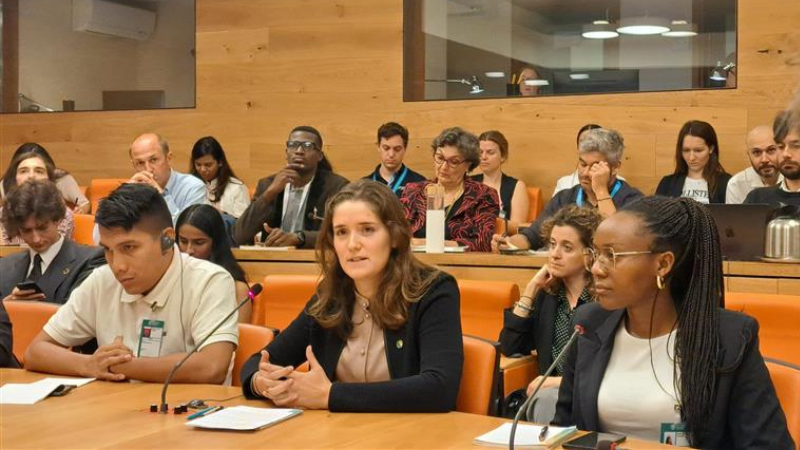
Organised in the framework of the UN Decade of Family Farming (2019-2028), this roundtable was the occasion to discuss directly with the younger generation the policy priorities around food systems and strategize how to keep farmers at the heart of the policy conversations when it comes to agrifood issues.
Ms Josiane Irakarama, WFO Gymnasium Alumna from the WFO Member INGABO Syndicate, and Ms Silvia Caprara, a young farmer from WFO Member Giovani di Confagricoltura (ANGA) attending the current edition of the WFO Gymnasium program, brought the WFO young farmers’ perspective into this remarkable session of the WFF GlobalYouth Forum 2023.
Ms Irakarama shared with the audience a personal story, recalling her mind when her mother asked her what she wanted to be when she grew up: “Do you want to be a doctor, a teacher, a lawyer? Despite being a farmer herself, she didn’t include farming as one of my potential career options!” she remembered. This gave her the chance to stress the common perception in many societies that farming is a choice made when other career options have failed and urged the need to change the narrative around farming and emphasise that it is not just a profession but a fundamental activity that sustains the world by providing food.
Ms Caprara, in her passionate speech, presented the WFO Young initiative, which aims to establish a youth-oriented branch within the WFO to enhance the participation of young farmers in sharing their experiences and ambitions. She emphasized the necessity of having young farmers actively involved in decision-making processes and highlighted the potential of youth branches within farmers’ organizations to provide education and confidence for youth to engage at various tables. Ms Caprara concluded by encouraging everyone to spread the word and involve as many young farmers as possible to amplify their collective voice for the betterment of farming and food production.
20 October – Science & Innovation Forum Closing Ceremony
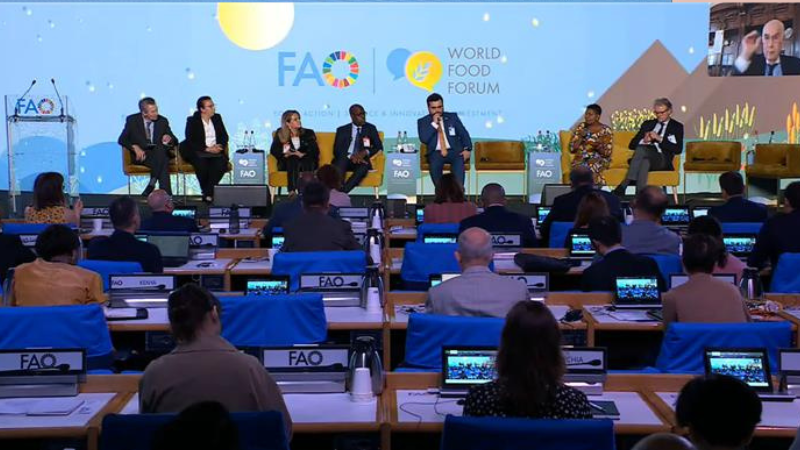
At the WFF SIF23 Closing Ceremony, Ms Nsimadala was again on stage, to share two key lessons and offer recommendations to support farmers and advance towards fairer, more equitable and sustainable food systems:
- Successful cases are still limited in occurrence and scattered in distribution.
- There have been a lot of events, conferences, debates and meetings about Science and Innovation; now it’s time to pause these talks and move into action.
“FAO has convened all of us, stakeholders, in this room” – she remarked – “It’s time to set our goals, formalize partnerships, and create ecosystems where we can deliver. Let’s move from the top and shift to real action!”
Echoing what the WFO Board member said, the FAO Science Chief, Ms Ismahane Elouafi, expressed hope for a future where farmers would be fairly compensated for their produce and ecosystem services.
